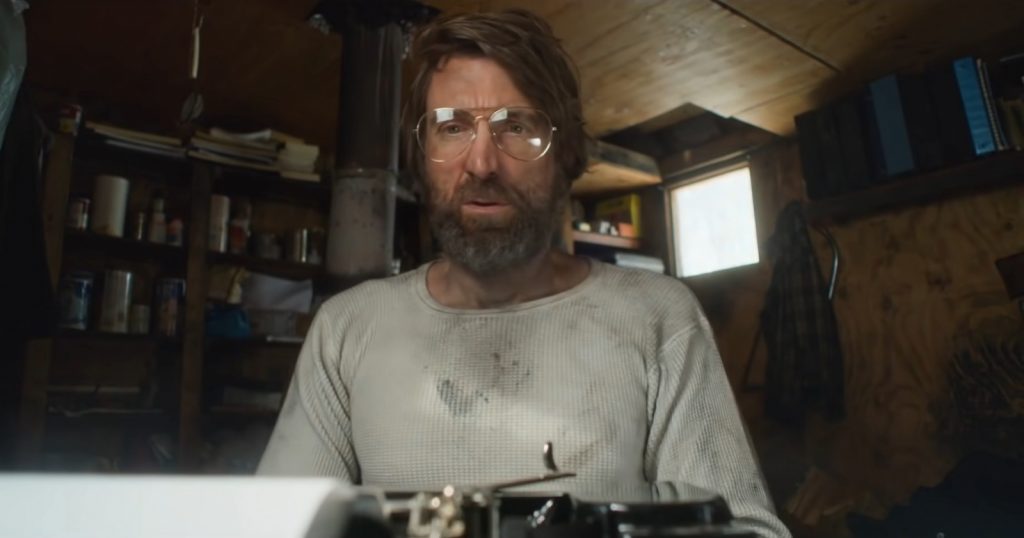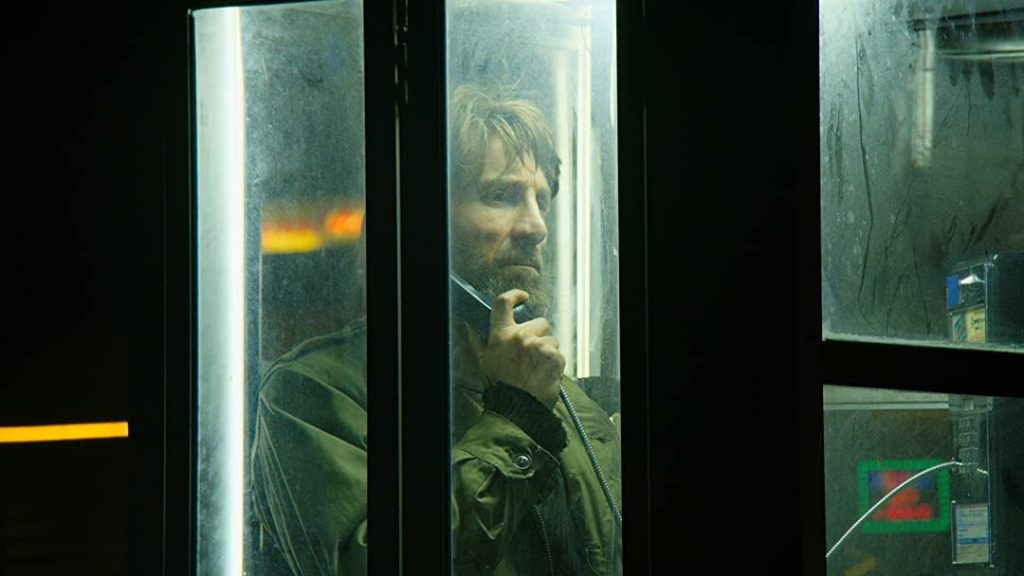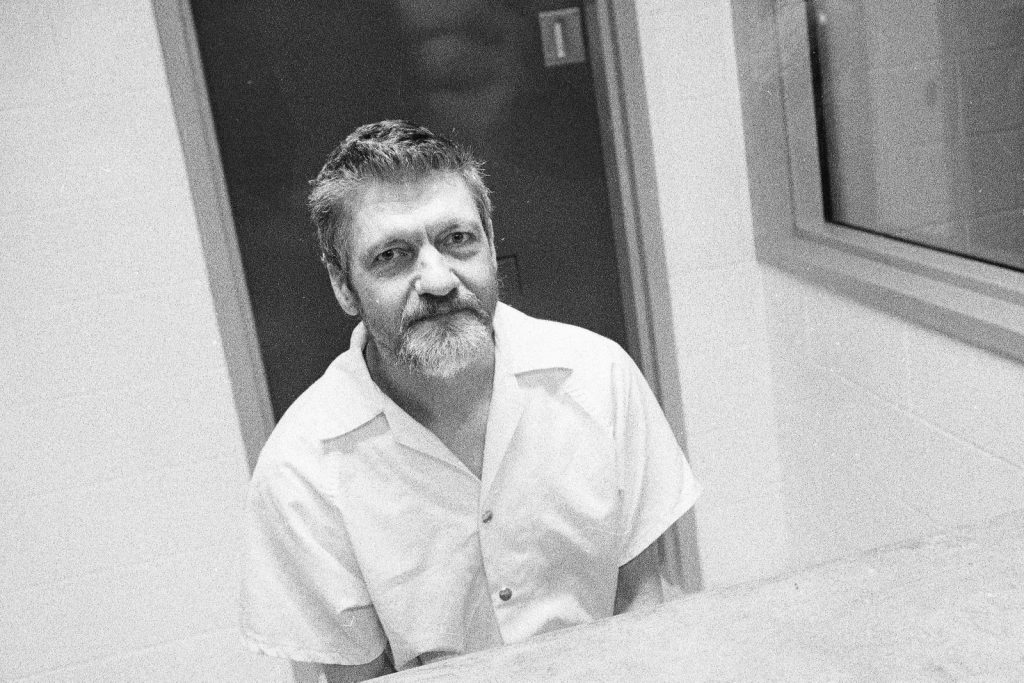

I have to admit I find Ted Kaczynski darkly fascinating. I ought also to qualify that immediately, by making it clear that his lone wolf campaign of murder and mutilation, what he himself viewed as ‘revenge’ against society, was appalling. Obviously!
Sharlto Copley (what a splendid name!), who I first saw in Elysium, and District 9, is superb as the titular Ted K. And this film is very well directed. We can really feel Ted’s isolation and rage.
I’ve read Kaczynski’s manifesto (see this post), and – unlike the ravings of some infamous killers – it’s got a good deal in it that actually makes sense, or rings true. But, like so many critiques of the ills of modern life, whilst there’s much that’s understandable, or even valid, it’s not really cogent as a road map to a better future. Not, that is, unless you share Ted’s Adolf Hitler like levels of Nihilism.

A quote from said manifesto, used in the film – ‘The aim of The Freedom Club is the complete and permanent destruction of modern society’ – succinctly sums up Ted’s wishes, whilst neatly encapsulating his ‘madness’. The lone wolf wants to be part of something bigger (his ‘Freedom Club’), and yet, as he admits in other writings, he knows his ‘one-man show’ can never achieve such grandiose ends.
This film captures very well his fascinating and tragic mental isolation and unhappiness. There’s a powerfully tragic scene in which, dressed smartly, he hand delivers a letter of complaint to a telecommunications company. In this one moment, we see both the microcosm and macrocosm: his ‘stolen quarters’ – he’s making a complaint about a malfunctioning payphone he regularly uses – mean nothing to the huge faceless corporation that runs the service. They even spurn Ted’s occasional efforts to play the game by their own rules; the refusal of the functionary to pass on his hand-delivered letter epitomising the inhumanity of the system at large; common humanity is sacrificed to the machine.

The telephone calls Ted makes from the malfunctioning phone booth, about which he has complained, are, at least in this film, mostly to his brother, David. David is the guy who would ultimately contact the police, leading to Ted’s arrest. Ted exhibits a schizoid hatred of and dependency upon his family. And he sounds depressingly like a brand of misfit ne’erdowell I’ve known personally (and perhaps even been, to my shame). Indeed, we probably all know or have encountered the type.
Something that strikes me, as I watch this, as a ‘resonant’ truth about the failings of humanity, is how Christians worldwide fail to have true faith in their supposed God’s ability to dispense justice. One might follow a similar line further, expanding the ‘fate’ thread to take in both religious and secular views, and argue that eco-terrorists ought, likewise, to have a little more faith, and just let modern industrial society destroy itself.

But there’s the rub. Ted, like so many of us, frankly, wants his heaven right now. And under the reigning dispensation that ain’t happening. So, as he says early on in the film, it becomes, rather than a righteous crusade^ to improve the world, merely a matter of revenge. And, as he also says, he feels empowered by his acts of revenge.
I think Ted K is a very well done movie. I found it fascinating, and compelling, rather like Kaczynski himself. It raises many questions, whilst maybe answering just a few. And it dramatises an interior mental world very well. There are some bizarre moments – is ‘Becky’ real?* – which, odd as they are, feel appropriate.
All told? Really very good. Well worth watching.
* In the film Becky seems to be an imaginary idealised woman Ted fantasises about. But she might be tenuously based on Becky Garland.
FOOTNOTE
Er… what was this going to say!?
^ The Rampage film series features a fictional American ‘domestic terrorist’, whose externalisation of his own psychosis is justified in the grandiose narcissistic tradition of the righteous crusader, killing the innocent (who they see as bovine docile collaborators, i.e. not innocent) to make a better world.
